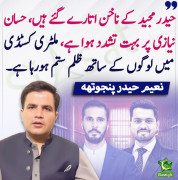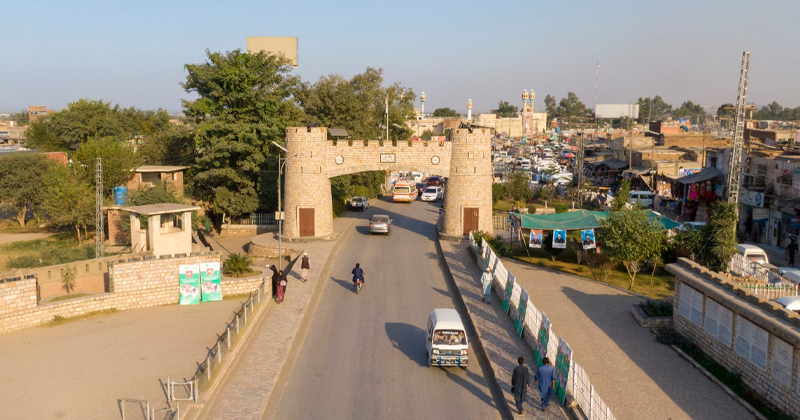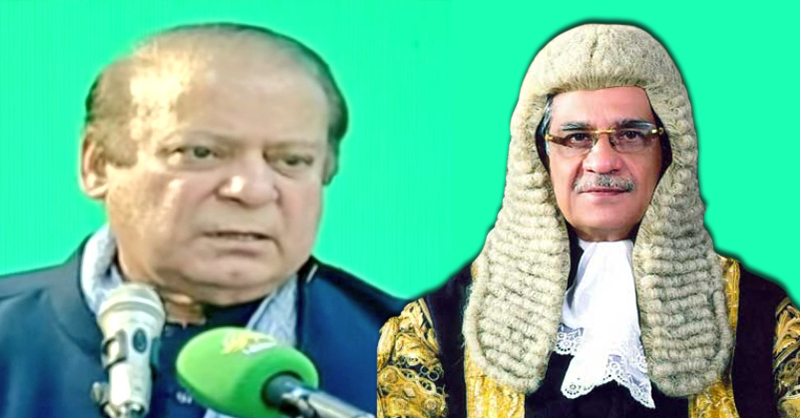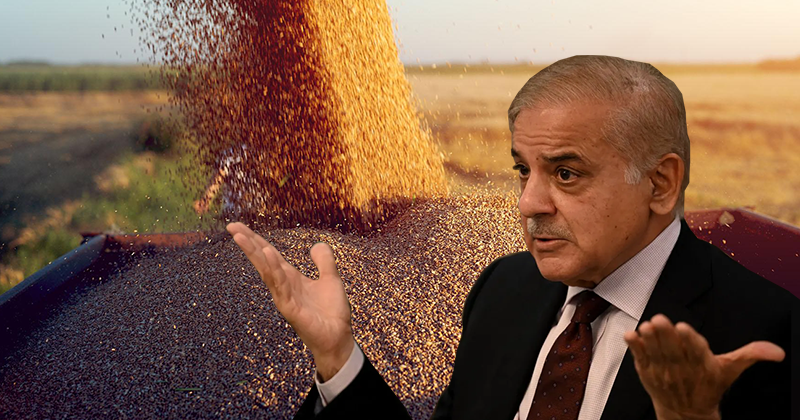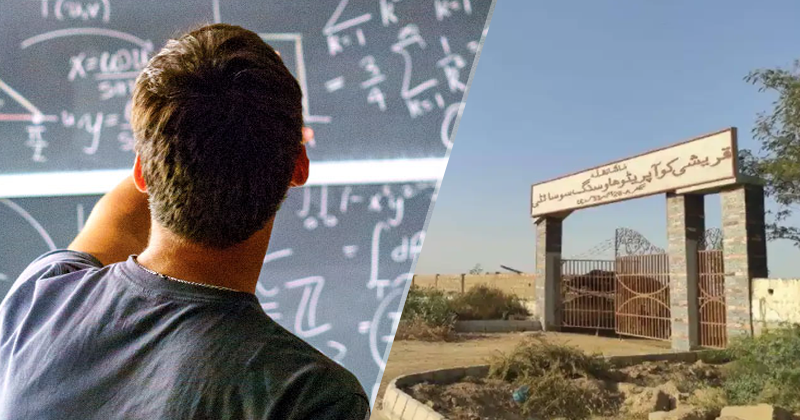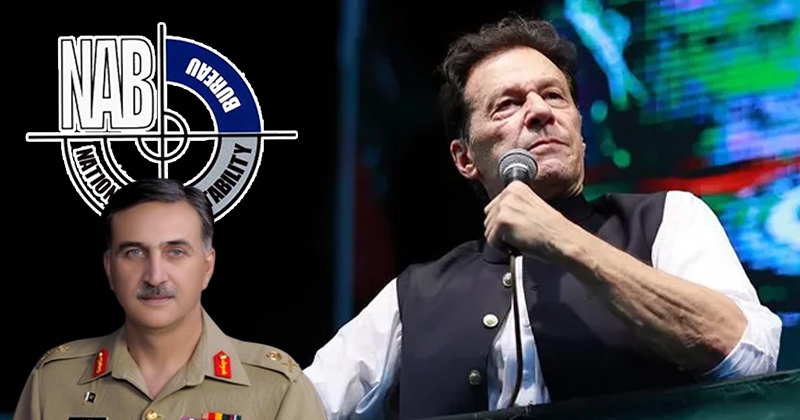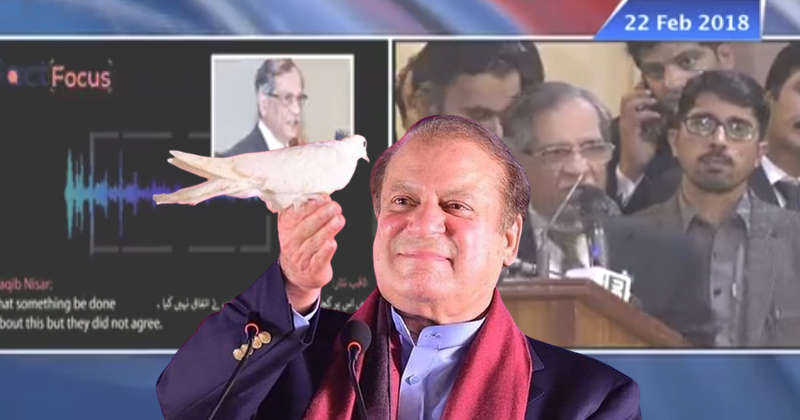The purpose of this thread is to educate my fellow Muslims that Islam does not allow even hurting the FEELINGS of animals. The religion who emphasis so much on animal rights, how can that religion allow hurting the feeling of a human being. Islam teaches us to create a tolerant society where the rights of all Muslims, non-Muslim and even animal are protected. There are differences among Muslim regarding some believes but there is no dispute in Faraez of Islam like, Namaz, Roza, Hajj, Zakaat...Muslims should be united first on these common grounds and then try to minimize the differences through acquiring knowledge and debate without hurting others feeling.
The Holy Prophet(s) has placed the killing of animals without a justifiable reason as one of the major sins:
Avoid ye the seven obnoxious things {deadly sins}: polytheism; magic; the killing breathing beings! Which God has forbidden except for rightful reason. (Narrated by Abu Huraira. Sahih Mulim - Kitab-ul-Imam (Ref. No. 46); Chapt. XXXIX, Vol.I; p. 52. Bukhari, 4:23. Also Awn, (Ref. No. 32); Hadith No. 2857.
The Prophet(s) once passed by a lean camel whose belly had shrunk to its back. 'Fear God' he said to the owner of the camel, 'in these dumb animals and ride them only when they are fit to be ridden, and let them go free when it is meet that they should rest. (Narrated by Abdullah bin Ja'far. Awn (Ref. No. 32); 7:221; Hadith No. 2532).
About taking care of animals while traveling, the Holy Prophet(s) used to give the following advice:
When you journey through a verdant land, {go slow to} let your camels graze. When you pass through an arid area, quicken your pace {lest hunger should enfeeble the animals}. Do not pitch your tents for the night on the beaten tracks, for they are the pathways of nocturnal creatures. (Narrated by Abu Huraira. Sahih Muslim - Kitab-ul-Imam (Ref. No. 53); Vol. III; Chapter DCCVII; Hadith No. 4724; pp. 1062, 1063.
Saying daily prayers (salat) is one of the five most important obligations of the Moslem religion. In the following Hadith, one of his companions tells us that the holy Prophet(s) and his fellow travelers used to delay even saying their prayers until they had first given their riding and pack animals fodder and had attended to their needs: "When we stopped at a halt, we did not say our prayers until we had taken the burdens off our camels' backs and attended to their needs." (Narrated by Anas. Awn (Ref. No. 32); 7:223; Hadith aNo. 5234. Also 'Guillaume' (Ref. No. 57); pp.106, 107).
We were on a journey with the Apostle of God(s), and he left us for a while. During his absence, we saw a bird called hummara with its two young and took the young ones. The mother bird was circling above us in the air, beating its wings in grief, when the Prophet came back and said: 'who has hurt the FEELINGS of this bird by taking its young? Return them to her'. (Narrated by Abdul Rahman bin Abdullah bin Mas'ud. Muslim. Also Awn (Ref. No. 32) Hadith No. 2658. Also "Guillaume' (Ref. No. 57); p. 106).
The Prophet(s) told his companions of a woman who would be sent to Hell for having locked up a cat; not feeding it, nor even releasing it so that it could feed herself." (Narrated by Abdullah bin 'Omar. Bukhari, 4:337; recorded in Riyad (Ref. No. 28), Hadith No. 1605; p. 271. Also Muslim, Vol. 4, Hadith No. 2242. English translation by Abdul Hamid Siddiqi; Sh. Muhammad Ashraf, Lahore, Pakistan; 1976; Vol. 4, Hadith No. 5570; p. 1215. (According to the English translation, this Hadith was also narrated by the Abu Huraira and by Naqi who had heard it from Abdullah); Hadith No. 5573; p. 1215.) This Hadith has been recorded by almost all the authentic books of hadith, as the Re. No. 53 will show)
The Prophet(s) was asked if acts of charity even to the animals were rewarded by God. He replied: 'yes, there is a reward for acts of charity to every beast alive.' (Narrated by Abu Huraira, Bukhari, 3:322. Also Muslim, Vol. 4; Hadith No. 2244. Also Awn (Ref. No. 32), 7:222, Hadith No. 2533. Also Mishkat al-masabih, Book 6; Chapter 6.
Mishkat Al-Masabih concluded from "Bukhari" and "Muslim" to the effect that: 'A good deed done to a beast is as good as doing good to a human being; while an act of cruelty to a beast is as bad as an act of cruelty to human beings' and that: 'Kindness to animals was promised by rewards in Life Hereafter.' (Mishkat al-Masabih; Book 6; Chapter 7, 8:178.)
The Prophet(s) told his companions of a serf who was blessed by Allah for saving the life of a dog by giving it water to drink and quenching its thirst. (Narrated by Abu Huraira. Muslim, Vol. 4, Hadith No. 2244. Also Bukhari, 3:322. Also Awn (Ref. No. 32); Hadith No. 2533, and others).
Jabir told that God's Messenger(s) forbade striking the face or branding on the face of animalsThe same companion of the Holy Prophet(s) reported him as saying, when an ass which had been branded in its face passed him by: 'God curse the one who branded it.' (Narrated by Jabir bin Abdullah. Muslim, Vol.3, Hadith No. 2116. Also Awn al-Ma'bud Sharh Abu Dawud (hereafter referred to as Awn); 7:232, hadith No. 2547. Also The Lawful and Unlawful in Islam (in Arabic); Yusuf el-Kardawi; Mektebe Vahba, Cairo; 1977; p. 293. Also 'Robson' (Ref. No. 15); p. 872). This Hadith is concerned with causing pain to the animal on the sensitive parts of its body, as well as with the disfigurement of its appearance.
When the Holy Prophet(s) migrated to Medina from Mecca in 622 A.C., people there used to cut off camels' humps and the fat tails of sheep. The Prophet(s) ordered this barbaric practice to be stopped. The temptation for the people to perform this sort of vivisection on the animals was that the juicy humps and fatty tails could be eaten while the animal remained alive for future use. To remove this avidity, he declared: "whatever is cut off an animal, while it is still alive, is carrion and is unlawful (Haram) to eat." (Narrated by Abu Waqid al-Laithi. Tirmidhi; Hadith No. 1480, Chapt. On Al-At'imah. Also 'Robson' (Ref. No. 15), p. 872).
Not only physical but also emotional care of animals was so much emphasized by the Holy Prophet(s) that he once reprimanded his wife, A'ishah, for treating a camel a bit offhandedly. Hazrat A'ishah herself narrates: "I was riding a restive camel and turned it rather roughly. The Prophet(s) said to me: 'it behooves you to treat the animals gently'. (Narrated by A'ishah. Muslim, Vol. 4, Hadith No. 2593. Also Awn, 7:155, Hadith No. 2461; (Ref. No. 32)).
The following Hadith forbids the disfiguration of the body of an animal.
The Prophet(s) said: 'Do not clip the forelock of a horse, for a decency is attached to its forelock; nor its mane, for it protects it; nor its tail, for it is its fly-flap'. (Narrated by 'Utbah ibn Farqad Abu Abdillah al-Sulami. Abu Dawud. Also Awn, 7:216, 217, Hadith No. 2525 (Ref. No. 32)).
The Prophet(s) condemned those people who take up anything alive as a mere sport." (Narrated by Abdullah bin 'Omar. Muslim, Vol. 3, Hadith No. 1958).
The Prophet said: 'Do not set up living creatures as a target'. (Narrated by Abdullah bin Abbas. Muslim Vol. 3, Hadith No. 1957. Also 'Robson'; p. 872 (Ref. No. 15).
The Prophet(s) condemned those who use a living creature as a target." (Narrated by Abdullah bin'Omar. Bukhari and Muslim. Also 'Robson' p. 872 (Ref. No. 15)).
The Prophet(PBUH) forbade an animal being made a target." (Narrated by Anas. Recorded by Riyad. (Ref. No. 28); Hadith No. 1606; p. 272.
The Prophet(s) was reported as saying: 'Do not make anything having life as a target'." (Narrated by Ibn Abbas. Sahih Muslim - Kitab-us-Said Wa'dh-Dhaba'ih; Chapter DCCCXXII, Vol. III; Sh. Muhammad Ashraf, Lahore, Pakistan, 1976; Hadith No. 4813; p. 1079; (hereafter referred to as Kitab-us-Said).
Ibn 'Umar happened to pass by a party of men who had tied a hen and were shooting arrows at it. When they saw Ibn 'Umar coming, they scampered off. Ibn 'Umar angrily remarked: 'Who has done this? Verily! Allah's Messenger(s) has invoked a curse upon one who does this kind of thing. (id. Narrated by Said bin Jubair).
The Prophet(s) passed by some children who were shooting arrows at a ram. He told them off, saying: 'do not maim the poor beast'." (Narrated by Abdallah bin Ja'far. An-Nasai, 7:238).
God's Messenger(s) forbade eating a mujaththema {carrion} of a bird or animal set up and shot at as a target for shooting. (Narrated by Waqid al-Laithi. Abu al-Darda. Tirmidhi, Hadith No. 1473, Chapt. 'Al-At'imah'. Also 'Robson' (Ref. No.15); p. 874.
Slaughter of Animals Used for Food
Meat-eating is neither encouraged nor even recommended by Islam: "Say {O Muhammad!} I find not in what has been revealed to me any food {meat} forbidden to those who wish to eat it, unless it be dead meat, or blood that pours forth, or the flesh of swine - for it is unclean {rijs} - or the sacriligious {fisq} meat which has been slaughtered in anybody's' name other than that of Allah." It is significant to note that these laws have been laid down for those "who wish to eat it" (Ta'imin yat'amohu). Eating meat is not required.
While Islam permits eating meat, it gives instructions to ensure humane slaughter, with as little pain to the victim as possible:
Allah's Messenger(PBUH) was reported as saying: 'Allah Who is Blessed and Exalted, has prescribed benevolence toward everything {and has ordained that everything be done in a good way}; so, when you must kill a living being, do it in the best manner and, when you slaughter an animal, you should {use the best method and} sharpen your knife so as to cause the animal as little pain as possible. (Narrated by Shaddad bin Aus. Muslim; Vol. 2, Chapter 11; Section on 'Slaying'; 10:739, verse 151. Also 'Robson' (Ref. No. 15); p. 872. Also recorded in Riyad. (Ref. No. 28); Hadith No. 643; p. 131).
The Messenger of Allah was heard forbidding to keep waiting a quadruped or any other animal for slaughter. (Bukhari. Also Muslim; Vol. 2, Chapter 11; Section on 'Slaying'; 10:739; verse 152. Also 'Robson' (Ref. NO. 15), p. 872).
The Prophet(PBUH) forbade all living creatures to be slaughtered while tied up
and bound. (id (Ref. No. 46); Hadith No. 4817; p. 1079).
The Holy Prophet(PBUH) said to a man who was sharpening his knife in the presence of the animal: 'Do you intend inflicting death on the animal twice - once by sharpening the knife within its sight, and once by cutting its throat?' (Al-Furu Min-al-Kafi Lil-Kulini; 6:230).
Omar (Razi Allah Talah Unhun) once saw a man denying a sheep, which he was going to slaughter, a satiating measure of water to drink. He gave the man a beating with his lash and told him: "Go, water it properly at the time of its death, you knave!" (Reported by Ibn Sirin about 'Omar (Razi Allah Talah Unhun)and recorded in Badae al-Sande; 6:2811).
Source: http://www.themodernreligion.com/misc/an/an2.htm
The Holy Prophet(s) has placed the killing of animals without a justifiable reason as one of the major sins:
Avoid ye the seven obnoxious things {deadly sins}: polytheism; magic; the killing breathing beings! Which God has forbidden except for rightful reason. (Narrated by Abu Huraira. Sahih Mulim - Kitab-ul-Imam (Ref. No. 46); Chapt. XXXIX, Vol.I; p. 52. Bukhari, 4:23. Also Awn, (Ref. No. 32); Hadith No. 2857.
The Prophet(s) once passed by a lean camel whose belly had shrunk to its back. 'Fear God' he said to the owner of the camel, 'in these dumb animals and ride them only when they are fit to be ridden, and let them go free when it is meet that they should rest. (Narrated by Abdullah bin Ja'far. Awn (Ref. No. 32); 7:221; Hadith No. 2532).
About taking care of animals while traveling, the Holy Prophet(s) used to give the following advice:
When you journey through a verdant land, {go slow to} let your camels graze. When you pass through an arid area, quicken your pace {lest hunger should enfeeble the animals}. Do not pitch your tents for the night on the beaten tracks, for they are the pathways of nocturnal creatures. (Narrated by Abu Huraira. Sahih Muslim - Kitab-ul-Imam (Ref. No. 53); Vol. III; Chapter DCCVII; Hadith No. 4724; pp. 1062, 1063.
Saying daily prayers (salat) is one of the five most important obligations of the Moslem religion. In the following Hadith, one of his companions tells us that the holy Prophet(s) and his fellow travelers used to delay even saying their prayers until they had first given their riding and pack animals fodder and had attended to their needs: "When we stopped at a halt, we did not say our prayers until we had taken the burdens off our camels' backs and attended to their needs." (Narrated by Anas. Awn (Ref. No. 32); 7:223; Hadith aNo. 5234. Also 'Guillaume' (Ref. No. 57); pp.106, 107).
We were on a journey with the Apostle of God(s), and he left us for a while. During his absence, we saw a bird called hummara with its two young and took the young ones. The mother bird was circling above us in the air, beating its wings in grief, when the Prophet came back and said: 'who has hurt the FEELINGS of this bird by taking its young? Return them to her'. (Narrated by Abdul Rahman bin Abdullah bin Mas'ud. Muslim. Also Awn (Ref. No. 32) Hadith No. 2658. Also "Guillaume' (Ref. No. 57); p. 106).
The Prophet(s) told his companions of a woman who would be sent to Hell for having locked up a cat; not feeding it, nor even releasing it so that it could feed herself." (Narrated by Abdullah bin 'Omar. Bukhari, 4:337; recorded in Riyad (Ref. No. 28), Hadith No. 1605; p. 271. Also Muslim, Vol. 4, Hadith No. 2242. English translation by Abdul Hamid Siddiqi; Sh. Muhammad Ashraf, Lahore, Pakistan; 1976; Vol. 4, Hadith No. 5570; p. 1215. (According to the English translation, this Hadith was also narrated by the Abu Huraira and by Naqi who had heard it from Abdullah); Hadith No. 5573; p. 1215.) This Hadith has been recorded by almost all the authentic books of hadith, as the Re. No. 53 will show)
The Prophet(s) was asked if acts of charity even to the animals were rewarded by God. He replied: 'yes, there is a reward for acts of charity to every beast alive.' (Narrated by Abu Huraira, Bukhari, 3:322. Also Muslim, Vol. 4; Hadith No. 2244. Also Awn (Ref. No. 32), 7:222, Hadith No. 2533. Also Mishkat al-masabih, Book 6; Chapter 6.
Mishkat Al-Masabih concluded from "Bukhari" and "Muslim" to the effect that: 'A good deed done to a beast is as good as doing good to a human being; while an act of cruelty to a beast is as bad as an act of cruelty to human beings' and that: 'Kindness to animals was promised by rewards in Life Hereafter.' (Mishkat al-Masabih; Book 6; Chapter 7, 8:178.)
The Prophet(s) told his companions of a serf who was blessed by Allah for saving the life of a dog by giving it water to drink and quenching its thirst. (Narrated by Abu Huraira. Muslim, Vol. 4, Hadith No. 2244. Also Bukhari, 3:322. Also Awn (Ref. No. 32); Hadith No. 2533, and others).
Jabir told that God's Messenger(s) forbade striking the face or branding on the face of animalsThe same companion of the Holy Prophet(s) reported him as saying, when an ass which had been branded in its face passed him by: 'God curse the one who branded it.' (Narrated by Jabir bin Abdullah. Muslim, Vol.3, Hadith No. 2116. Also Awn al-Ma'bud Sharh Abu Dawud (hereafter referred to as Awn); 7:232, hadith No. 2547. Also The Lawful and Unlawful in Islam (in Arabic); Yusuf el-Kardawi; Mektebe Vahba, Cairo; 1977; p. 293. Also 'Robson' (Ref. No. 15); p. 872). This Hadith is concerned with causing pain to the animal on the sensitive parts of its body, as well as with the disfigurement of its appearance.
When the Holy Prophet(s) migrated to Medina from Mecca in 622 A.C., people there used to cut off camels' humps and the fat tails of sheep. The Prophet(s) ordered this barbaric practice to be stopped. The temptation for the people to perform this sort of vivisection on the animals was that the juicy humps and fatty tails could be eaten while the animal remained alive for future use. To remove this avidity, he declared: "whatever is cut off an animal, while it is still alive, is carrion and is unlawful (Haram) to eat." (Narrated by Abu Waqid al-Laithi. Tirmidhi; Hadith No. 1480, Chapt. On Al-At'imah. Also 'Robson' (Ref. No. 15), p. 872).
Not only physical but also emotional care of animals was so much emphasized by the Holy Prophet(s) that he once reprimanded his wife, A'ishah, for treating a camel a bit offhandedly. Hazrat A'ishah herself narrates: "I was riding a restive camel and turned it rather roughly. The Prophet(s) said to me: 'it behooves you to treat the animals gently'. (Narrated by A'ishah. Muslim, Vol. 4, Hadith No. 2593. Also Awn, 7:155, Hadith No. 2461; (Ref. No. 32)).
The following Hadith forbids the disfiguration of the body of an animal.
The Prophet(s) said: 'Do not clip the forelock of a horse, for a decency is attached to its forelock; nor its mane, for it protects it; nor its tail, for it is its fly-flap'. (Narrated by 'Utbah ibn Farqad Abu Abdillah al-Sulami. Abu Dawud. Also Awn, 7:216, 217, Hadith No. 2525 (Ref. No. 32)).
The Prophet(s) condemned those people who take up anything alive as a mere sport." (Narrated by Abdullah bin 'Omar. Muslim, Vol. 3, Hadith No. 1958).
The Prophet said: 'Do not set up living creatures as a target'. (Narrated by Abdullah bin Abbas. Muslim Vol. 3, Hadith No. 1957. Also 'Robson'; p. 872 (Ref. No. 15).
The Prophet(s) condemned those who use a living creature as a target." (Narrated by Abdullah bin'Omar. Bukhari and Muslim. Also 'Robson' p. 872 (Ref. No. 15)).
The Prophet(PBUH) forbade an animal being made a target." (Narrated by Anas. Recorded by Riyad. (Ref. No. 28); Hadith No. 1606; p. 272.
The Prophet(s) was reported as saying: 'Do not make anything having life as a target'." (Narrated by Ibn Abbas. Sahih Muslim - Kitab-us-Said Wa'dh-Dhaba'ih; Chapter DCCCXXII, Vol. III; Sh. Muhammad Ashraf, Lahore, Pakistan, 1976; Hadith No. 4813; p. 1079; (hereafter referred to as Kitab-us-Said).
Ibn 'Umar happened to pass by a party of men who had tied a hen and were shooting arrows at it. When they saw Ibn 'Umar coming, they scampered off. Ibn 'Umar angrily remarked: 'Who has done this? Verily! Allah's Messenger(s) has invoked a curse upon one who does this kind of thing. (id. Narrated by Said bin Jubair).
The Prophet(s) passed by some children who were shooting arrows at a ram. He told them off, saying: 'do not maim the poor beast'." (Narrated by Abdallah bin Ja'far. An-Nasai, 7:238).
God's Messenger(s) forbade eating a mujaththema {carrion} of a bird or animal set up and shot at as a target for shooting. (Narrated by Waqid al-Laithi. Abu al-Darda. Tirmidhi, Hadith No. 1473, Chapt. 'Al-At'imah'. Also 'Robson' (Ref. No.15); p. 874.
Slaughter of Animals Used for Food
Meat-eating is neither encouraged nor even recommended by Islam: "Say {O Muhammad!} I find not in what has been revealed to me any food {meat} forbidden to those who wish to eat it, unless it be dead meat, or blood that pours forth, or the flesh of swine - for it is unclean {rijs} - or the sacriligious {fisq} meat which has been slaughtered in anybody's' name other than that of Allah." It is significant to note that these laws have been laid down for those "who wish to eat it" (Ta'imin yat'amohu). Eating meat is not required.
While Islam permits eating meat, it gives instructions to ensure humane slaughter, with as little pain to the victim as possible:
Allah's Messenger(PBUH) was reported as saying: 'Allah Who is Blessed and Exalted, has prescribed benevolence toward everything {and has ordained that everything be done in a good way}; so, when you must kill a living being, do it in the best manner and, when you slaughter an animal, you should {use the best method and} sharpen your knife so as to cause the animal as little pain as possible. (Narrated by Shaddad bin Aus. Muslim; Vol. 2, Chapter 11; Section on 'Slaying'; 10:739, verse 151. Also 'Robson' (Ref. No. 15); p. 872. Also recorded in Riyad. (Ref. No. 28); Hadith No. 643; p. 131).
The Messenger of Allah was heard forbidding to keep waiting a quadruped or any other animal for slaughter. (Bukhari. Also Muslim; Vol. 2, Chapter 11; Section on 'Slaying'; 10:739; verse 152. Also 'Robson' (Ref. NO. 15), p. 872).
The Prophet(PBUH) forbade all living creatures to be slaughtered while tied up
and bound. (id (Ref. No. 46); Hadith No. 4817; p. 1079).
The Holy Prophet(PBUH) said to a man who was sharpening his knife in the presence of the animal: 'Do you intend inflicting death on the animal twice - once by sharpening the knife within its sight, and once by cutting its throat?' (Al-Furu Min-al-Kafi Lil-Kulini; 6:230).
Omar (Razi Allah Talah Unhun) once saw a man denying a sheep, which he was going to slaughter, a satiating measure of water to drink. He gave the man a beating with his lash and told him: "Go, water it properly at the time of its death, you knave!" (Reported by Ibn Sirin about 'Omar (Razi Allah Talah Unhun)and recorded in Badae al-Sande; 6:2811).
Source: http://www.themodernreligion.com/misc/an/an2.htm








